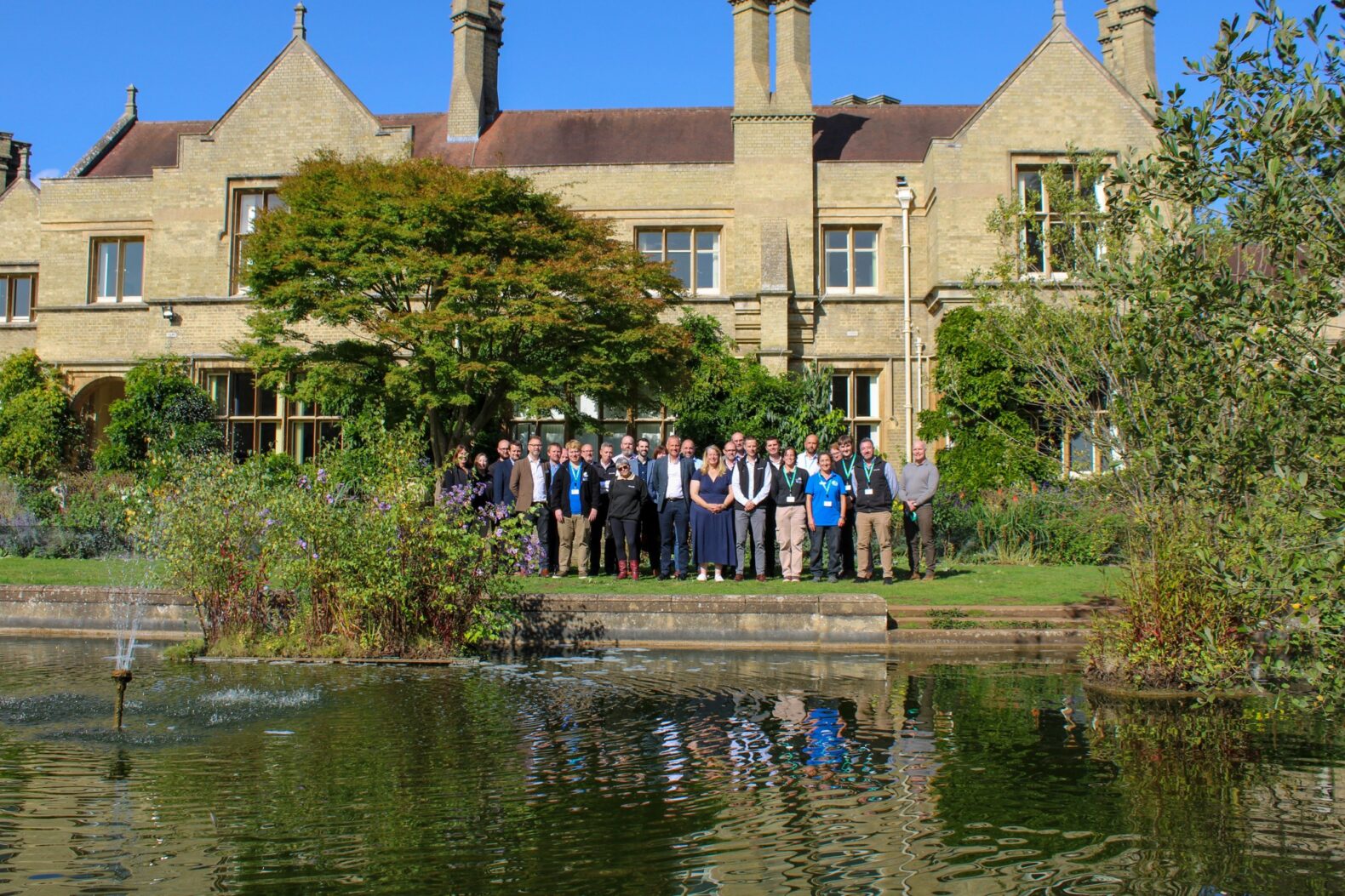Swift Response by idverde Teams Clears Trowbridge Road After Bin Lorry Fire
In a commendable effort, idverde teams played a crucial role in the cleanup operation
Grounds Maintenance, Landscape Creation, Arboriculture, Sports Surfacing, Parks management, IOS Managing Safely Training, Ecology & Biodiversity, Grass cutting, Horticulture, Street Cleaning, Soft Landscaping, Hard Landscaping
idverde provides a wide range of green services, including grounds maintenance, landscape creation, and advice services, to both private and public sectors across the UK.
As our world becomes increasingly urbanised, it is critical that urban spaces are greened to promote future security and well-being. Transforming concrete jungles into leafy green sanctuaries is no longer just an aesthetic preference; it is a crucial measure for the health of our cities and the people who live in them and can even provide economic benefits
One key advantage of urban greening is the enhancement of biodiversity. Urban green spaces can provide habitats for various plant and pollinating animal species, contributing to the overall ecological balance within the city. Our floral display brand, Plantscape, has a whole range of planters perfect for pollinators, ideal for quick and immediate biodiversity support, with aesthetics in mind.
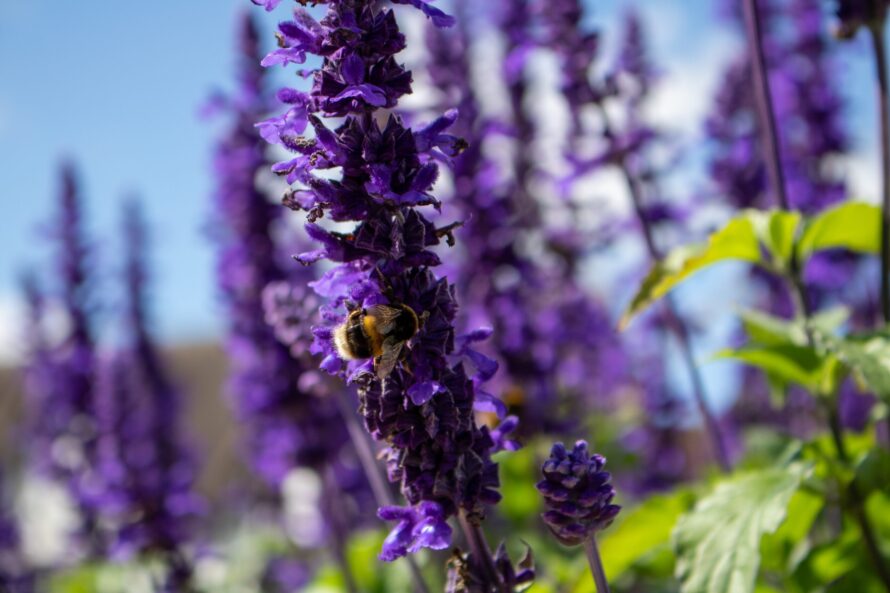
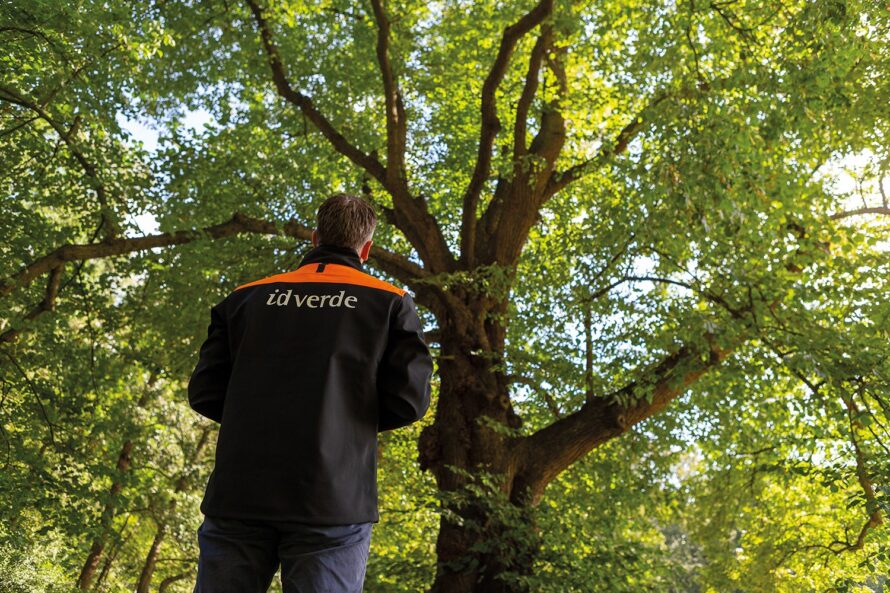
There are numerous reasons for the benefits that urban trees provide. Nowadays, people are becoming increasingly aware of the significance of trees in the context of urban climate adaptation.
Trees help to reduce flooding by intercepting rainfall and cooling the local air temperature. They are also effective in capturing carbon dioxide emissions, decreasing air pollution, reducing water pollution from rainwater runoff, and simultaneously making cities more aesthetic and visually appealing.
The existence of green spaces in urban areas has been shown to help mitigate the urban heat island effect (where cities seem to experience warmer temperatures than more rural spaces) by providing shade and cooling the local air temperature.
This leads to a more comfortable and sustainable urban environment, particularly during the warmer and record-breaking temperature increase year-on-year.
Urban green spaces could act as carbon sinks, absorbing greenhouse gases and reducing the carbon footprint of cities. Trees and vegetation help to cool urban areas, combatting the urban heat island effect and mitigating the impact of global warming.
Green roofs and living walls could positively impact biodiversity and improve air quality. Adding nature and colour to spaces that are otherwise concrete deserts, has been reported as being more attractive and supports mental well-being.
Read how idverde in Denmark are implementing roof gardens at a children’s hospital here.
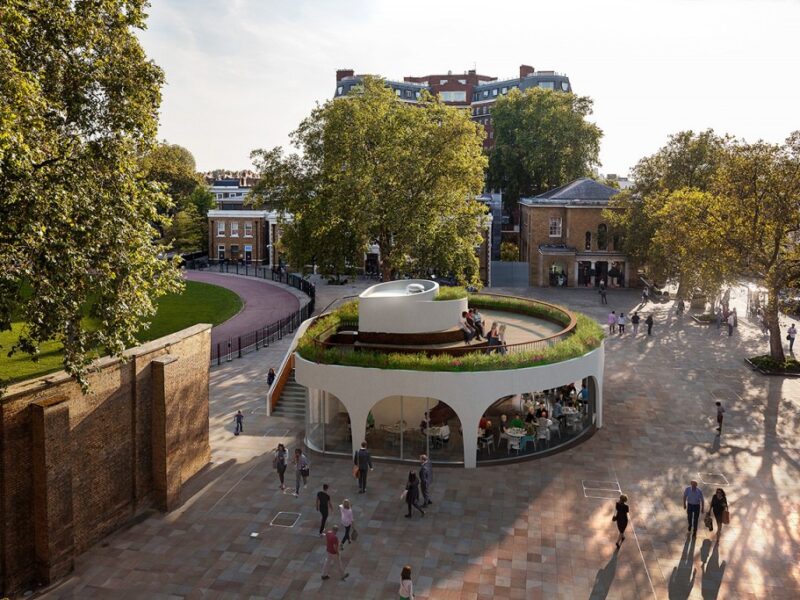
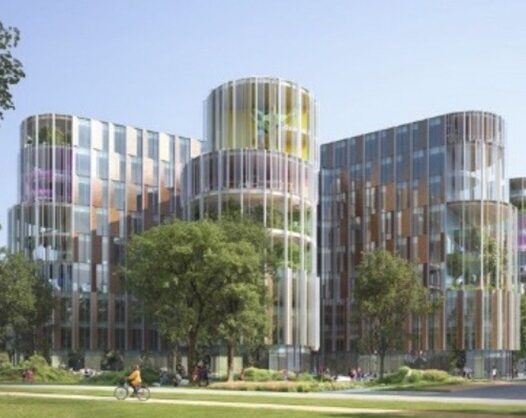
Urban green spaces can act as natural water filters, reducing stormwater runoff and preventing water pollution. Vegetation helps to absorb and retain rainwater, replenish groundwater supplies, and reduce the strain on urban drainage systems. Green infrastructure, such as bioswales and rain gardens, helps to manage and control stormwater, reducing the risk of flooding.
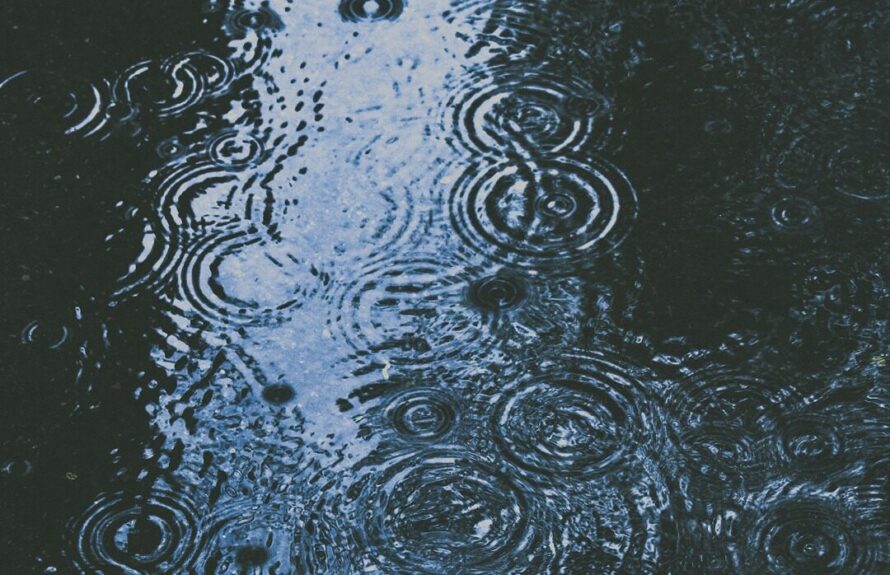
Greening urban spaces and adding SUDs could help cities adapt to climate change by reducing flood risks, improving water management, and enhancing overall resilience. Sustainable cities with well-designed green infrastructure and urban forests are better equipped to withstand extreme weather events and promote sustainable living.
At Sauchiehall Street UK, as part of the Sustainable Urban Drainage System (SUDS), water must run off the paving, flow over the tree pit, and descend below.
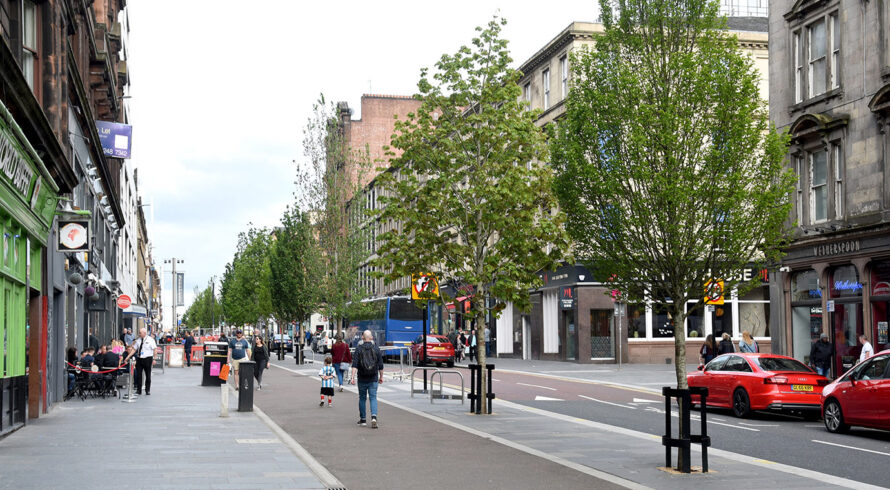
Our design had to ensure that our rooting space had sufficient attenuation capacity and that the outfalls were designed to remove excess water at a controlled rate into the sewers.
Additionally, we needed to protect services drains and basements from root invasion, safeguard our growing medium from contamination from adjacent soils, irrigate our trees, and prevent waterlogging.
We used a porous jointing product between paving units to ensure adequate surface runoff from the adjacent public realm. We also used proprietary porous concrete as a base material for the paving surface to support the strength of these joints, ensuring that the paving construction was robust. We carried out infiltration tests to demonstrate that water moved away quickly enough.
In the UK, the MCFC (Manchester City Football Club) tree planting scheme has the cells themselves and surrounding infrastructure designed to enable SUDs. This allows the trees to deal with surface water runoff and retain moisture in the cell structure to provide the perfect growing conditions, all while discharging surplus liquid into the existing drainage network.
This was all made possible by the collaboration and coordination of local utility companies, the local council and stakeholders associated with Etihad Stadium.
Access to green spaces has been shown to have a positive impact on mental health, reducing stress, anxiety, and depression among city residents. Nature-based environments offer opportunities for relaxation, recreation and escape from the stresses of urban life, promoting overall well-being.
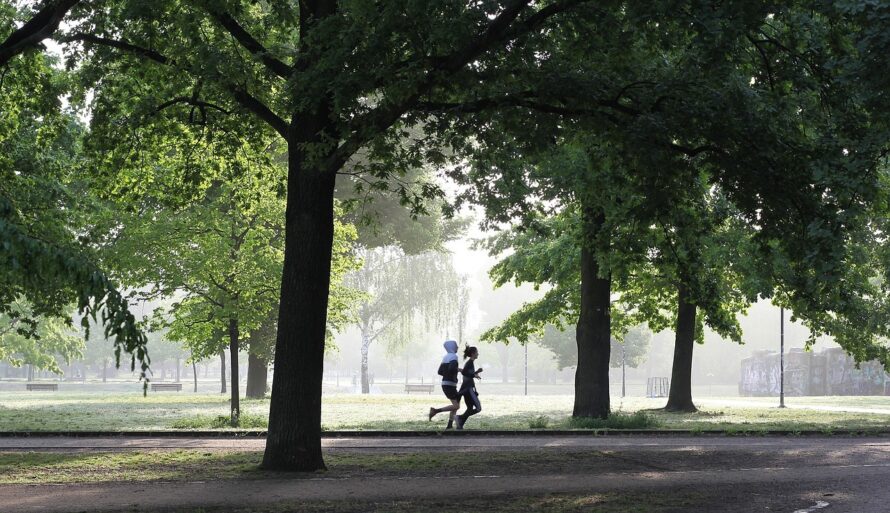
Green spaces encourage physical activity, providing spaces for walking, jogging, cycling, and other forms of exercise. Parks and gardens promote a healthier lifestyle, reducing the risk of obesity and related health issues among city dwellers.
Green spaces serve as community gathering places, fostering social connections and strengthening the sense of belonging among urban residents. Parks and gardens host events, festivals, and cultural activities, bringing people together and creating opportunities for social interaction and economic benefit.
Green spaces could increase property values, making surrounding areas more desirable for residential and commercial development. The presence of parks, gardens, and tree-lined streets attracts businesses, tourists, and investment, contributing to local economic growth.
Becoming more environmentally focused is increasingly at the forefront of many consumers and often influences buying decisions. Businesses shown to do what they can for the environment, could create a competitive advantage against their competitors.
Developing and maintaining urban green spaces creates employment opportunities and contributes to local job creation. Green spaces also provide habitats for diverse plant and animal species, enhancing urban biodiversity and promoting ecological balance.
In all the countries where idverde operates, we always look to the future and how innovative solutions can improve urban spaces. idverde in Copenhagen has been implementing visionary urban projects focusing on waste recycling and renewable energy.
These initiatives aim to make human activities sustainable and have a positive impact on the environment. One of the most notable projects is the Amager Bakke incinerator, or Copen Hill.
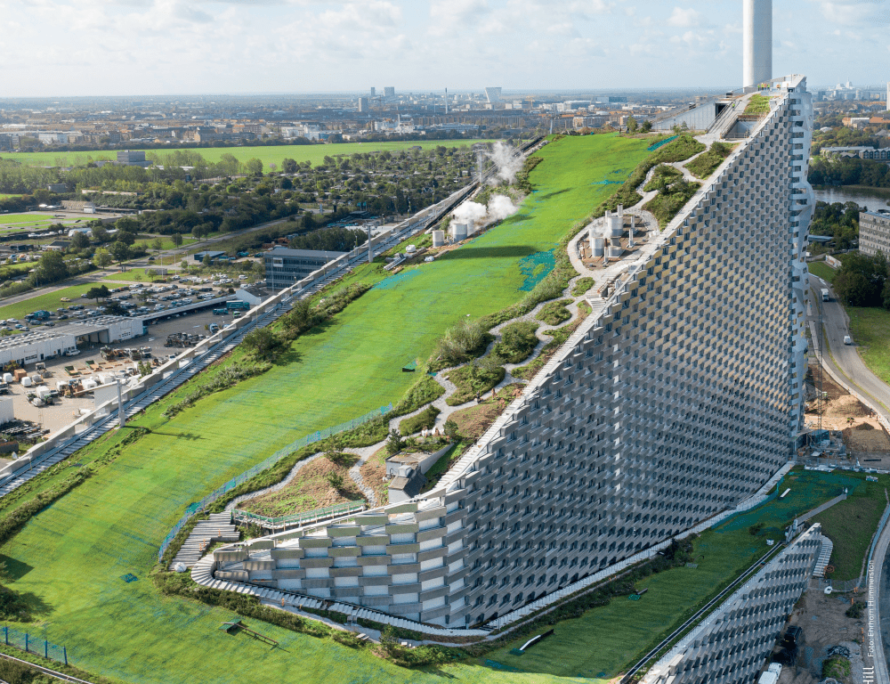
The Copen Hill project in Copenhagen showcases the innovative ways urban spaces can be transformed to benefit the environment and its inhabitants.
The sustainable development approach has been adopted that focuses on the efficiency of renewable energy to accommodate the waste collected from 700,000 residents and 46,000 businesses.
The outdated waste incineration plant in Copenhagen has been transformed into a modern waste recovery plant. The newly revamped Copen Hill plant not only recycles waste but also serves as a recreational centre for Copenhagen residents, including a 600-metre ski slope.
In addition, it hosts a hiking trail, a café, and an education centre dedicated to environmental protection. One side of the building has one of the tallest artificial climbing walls.
idverde aspires to create places where people & nature thrive. We harness the power of nature to develop green spaces that benefit communities, protect biodiversity and help cities manage climate change.
At idverde, we create green spaces that breathe life into our cities and suburbs.
We’re pioneering the creation and maintenance of climate-resilient, biodiverse places where people and nature can thrive together.
Nature-based solutions to combat climate change are innovative and comprehensive approaches focused on cooperation with natural ecosystems rather than artificial interventions.
The concept of nature-based solutions (NBS) emerged at the United Nations: “Nature-based solutions (NbS) are actions to protect, sustainably manage, and restore natural and modified ecosystems that address societal challenges effectively and adaptively, simultaneously benefiting people and nature.”
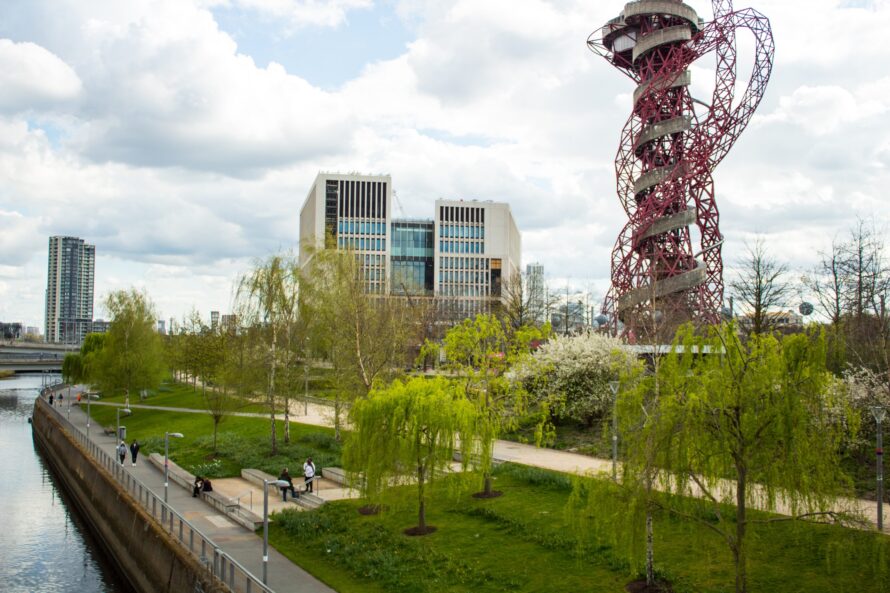
Councils, planners, landscapers, and management companies face more significant pressure to disclose and decrease their carbon footprint. In addition to meeting regulatory requirements, individuals and organisations are opting to take a strong ethical stance towards achieving net-zero emissions and contributing positively to the environment, both locally and globally.
Greening urban spaces is crucial for creating liveable, sustainable, and economically resilient cities. By recognising and investing in the power of green, we can mitigate climate change, improve public health, foster social cohesion, and pave the way for a sustainable future.
Embracing the green revolution is not an option; it is necessary for the well-being of our cities, the environment, and future generations.
To discover how idverde services can help your specific needs, visit: www.idverde.co.uk/services/
